Колин Форбс - Tramp in Armour
Здесь есть возможность читать онлайн «Колин Форбс - Tramp in Armour» весь текст электронной книги совершенно бесплатно (целиком полную версию без сокращений). В некоторых случаях можно слушать аудио, скачать через торрент в формате fb2 и присутствует краткое содержание. Город: London, Год выпуска: 1971, ISBN: 1971, Издательство: Pan Books, Жанр: Триллер, Историческая проза, prose_military, на английском языке. Описание произведения, (предисловие) а так же отзывы посетителей доступны на портале библиотеки ЛибКат.
- Название:Tramp in Armour
- Автор:
- Издательство:Pan Books
- Жанр:
- Год:1971
- Город:London
- ISBN:0-330-02686-0
- Рейтинг книги:3 / 5. Голосов: 1
-
Избранное:Добавить в избранное
- Отзывы:
-
Ваша оценка:
- 60
- 1
- 2
- 3
- 4
- 5
Tramp in Armour: краткое содержание, описание и аннотация
Предлагаем к чтению аннотацию, описание, краткое содержание или предисловие (зависит от того, что написал сам автор книги «Tramp in Armour»). Если вы не нашли необходимую информацию о книге — напишите в комментариях, мы постараемся отыскать её.
Tramp in Armour — читать онлайн бесплатно полную книгу (весь текст) целиком
Ниже представлен текст книги, разбитый по страницам. Система сохранения места последней прочитанной страницы, позволяет с удобством читать онлайн бесплатно книгу «Tramp in Armour», без необходимости каждый раз заново искать на чём Вы остановились. Поставьте закладку, и сможете в любой момент перейти на страницу, на которой закончили чтение.
Интервал:
Закладка:
‘I don’t think we should count on it.’
They paused as they heard the humming sound of a host of engines above them. Craning their necks they stared into the sky where an armada of small grey dots was approaching from the east, the humming growing steadily louder as the planes came forward like a swarm of angry bees. Storch nodded his head in satisfaction.
‘General Goering is on time again and I see he has the sky to himself. When Mr Churchill opened the cupboard this morning he must have found his shelves bare.’
‘We mustn’t count on air immunity any longer,’ said Meyer sharply. ‘After all, we can actually see England from here.’
Storch tightened his lips at this sign of caution. ‘I want a very detailed report about your conversation with, this Fascist. He says this road will be covered by only a few inches of water – sufficient to conceal its existence but not enough to prevent the passage of the Panzers. Since he is a local he may well know what he is talking about.’
‘I’d better go now.’
But Meyer did not go immediately because his sharp ears had heard a fresh sound in the sky, an engine sound different from that of Goering’s huge aerial fleet. Whipping up his glasses he focused them towards the west while beside him Storch also stood with his binoculars aimed upwards. High above the Channel, at an altitude much greater than the Luftwaffe bombers, several squadrons of RAF fighters flew steadily on course, heading for an invisible point which would take them over the heart of the oncoming bombers, although from the ground it seemed that the two air fleets were advancing on a collision course. Less than a minute later the RAF formations dived to the attack, roaring down like avenging hornets on the massed planes below, weaving in and out of the pattern of bombers which was now becoming disorganized as the pilots forgot their objectives and desperately began to take evading action. In less than two minutes the huge German air armada was flying in all directions, its attack formation completely shattered. One bomber spiralled to the ground and crashed into the fields a mile away, to be followed by a second, but this one was heading for the coast close to where Storch and Meyer stood. As one man they dropped flat behind the hull of a nearby tank only seconds before the bomber hit the earth three hundred yards away, its bomb load exploding a few seconds after the moment of impact. The vibrations of the shock wave rattled the tank behind which they sheltered and a shower of soil rained down on Storch’s neck and shoulders. Meyer spoke quietly.
‘Mr Churchill must have found something at the bottom of his cupboard.’
‘Driver, halt! There’s a parachute coming down,’ Barnes warned.
The air battle had raged over their heads, out of sight, for several minutes – out of sight even though the sky was cloudless because the planes were high and against the glare of the early afternoon sun. From the noise it sounded as though several machines were wheeling and diving as they fought each other to death in the sunlight. The engine sounds had come closer and faintly he had heard the stutter of machine guns but they went on manoeuvring in front of the sun so that he had found it impossible to locate them until he had heard the ominous sound of a plane plunging into a tremendous power dive. Then he had located a small dark shape spinning earthwards a long way to the west, much too far off to identify its nationality quite apart from the fantastic speed at which it approached the ground. It vanished and he heard a distant cough. Petrol tank gone. A thread of black smoke crept up from the horizon. Overhead the sky was full of warm silence. He gave the order to advance, reversing that order almost at once as he saw the tiny inverted cone of the single parachute floating down. He waited.
While he waited he thought about Penn. Since noon they had passed through three abandoned villages, and when he had halted the tank and walked through their deserted streets he had in each place found a house with the tantalizing word Medecin on a door-plate, but there had been no one behind the doors. Inside the third village they had stopped briefly for a quick meal from the Mandels’ food parcel but Penn hadn’t shared the meal because he appeared to have fallen into a state of unconsciousness. Alarmed, Barnes had checked his pulse but the beat was steady. When he felt his forehead it was hot and damp, and now everything in Barnes’ mind was dominated by his new priority – finding a doctor. They were within four miles of the next village before the air battle going on overhead had attracted his attention as he halted the tank to attend to a call of nature. Reynolds twisted his head above the hatch to follow the course of the cone as it grew larger and larger drifting straight for them across the deserted fields. He called up from the hatch.
‘Ours or theirs?’
‘No idea.’
It was a good question, a vital question, in fact. The last thing they could cope with at the present was a Luftwaffe pilot as a prisoner. But if he had seen them and they let him go free it might be less than an hour before German headquarters in Cambrai knew of the presence of a British tank prowling behind their lines. As he watched the parachutist drift lower Barnes swore to himself. He had already shot one German for mercy reasons beside the wrecked infantry truck, but the idea of shooting one down in cold blood for their own protection was rather a different business. Maybe he’ll open fire on me, Barnes told himself. If he does I’ll let him have half the magazine. There was, of course, just the chance that the pilot wouldn’t see them. The parachute was drifting lower and lower – and closer – the tiny figure underneath pulling at cords to guide himself, bobbing about so erratically that Barnes found it impossible to focus the glasses on him. Reynolds called up from the hatch.
‘What if it is a Jerry?’
‘Then we’ll have a problem on our hands.’
‘I’d shoot the bastard. He’s probably just back from machine-gunning one of those refugee columns.’
Barnes was surprised. It was the first time that Reynolds had ever expressed an opinion without being asked for one. His burnt arms must be playing him up badly. Reaching down, he picked up the machine-pistol and tucked it under his arm. There was no hope now that the parachutist might not see them – as he drifted close to the earth he was floating nearer and nearer to the tank. From that height and distance he couldn’t possibly miss seeing them. Climbing down from the turret he stood on the hull so that he could see the exact landing point. The parachutist was now tugging frantically at the cords so that the cone which had been almost overhead was floating away from them along the country road. He jumped down off the hull.
‘I can follow him in the tank,’ offered Reynolds.
‘No, I’ll investigate this blighter myself – get another machine-pistol out of the turret and wait here.’
‘Watch yourself, Sergeant. Don’t forget Seft.’
That was the trouble at the moment, Barnes thought. We’re in a general state of jitters. Apart from the Mandel farm, which had been a brief oasis of peace in a nightmare world, ever since they had arrived at Fontaine they had met either the enemy in the form of Panzers or treachery in the form of Lebrun; in the case of Seft the enemy and treachery had combined into one menace. So what was he going to encounter now? Let him give me just one reason, just one small reason, and I’ll press the trigger.
He was running along the dusty road when the pilot landed in the field close to the verge, the parachute billowing as it dragged its owner across the grass. The cloth cone collapsed slowly. Barnes ran faster. He wanted to get there before the pilot disentangled himself from the cords, but as he came closer the man released himself from the parachute and climbed to his knees, facing Barnes who ran up with the machine-pistol thrust forward. Were pilots armed? He didn’t think so but he wasn’t taking any chances. The kneeling figure saw the gun and stayed on his knees, throwing bis arms wide to show that he was unarmed. The next second will tell, Barnes thought grimly, and then the man spoke.
Читать дальшеИнтервал:
Закладка:
Похожие книги на «Tramp in Armour»
Представляем Вашему вниманию похожие книги на «Tramp in Armour» списком для выбора. Мы отобрали схожую по названию и смыслу литературу в надежде предоставить читателям больше вариантов отыскать новые, интересные, ещё непрочитанные произведения.
Обсуждение, отзывы о книге «Tramp in Armour» и просто собственные мнения читателей. Оставьте ваши комментарии, напишите, что Вы думаете о произведении, его смысле или главных героях. Укажите что конкретно понравилось, а что нет, и почему Вы так считаете.
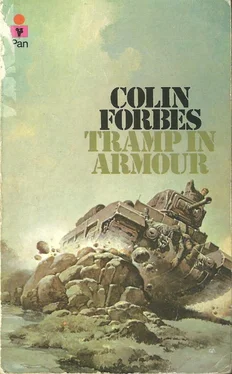

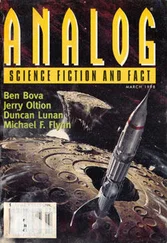

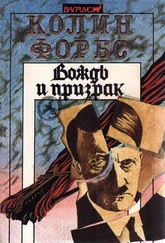
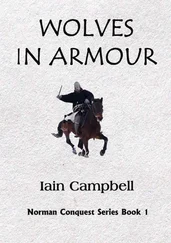

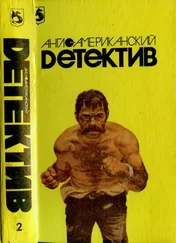
![Невилл Форбс - История Балкан [Болгария, Сербия, Греция, Румыния, Турция от становления государства до Первой мировой войны] [litres]](/books/390301/nevill-forbs-istoriya-balkan-bolgariya-serbiya-gre-thumb.webp)


